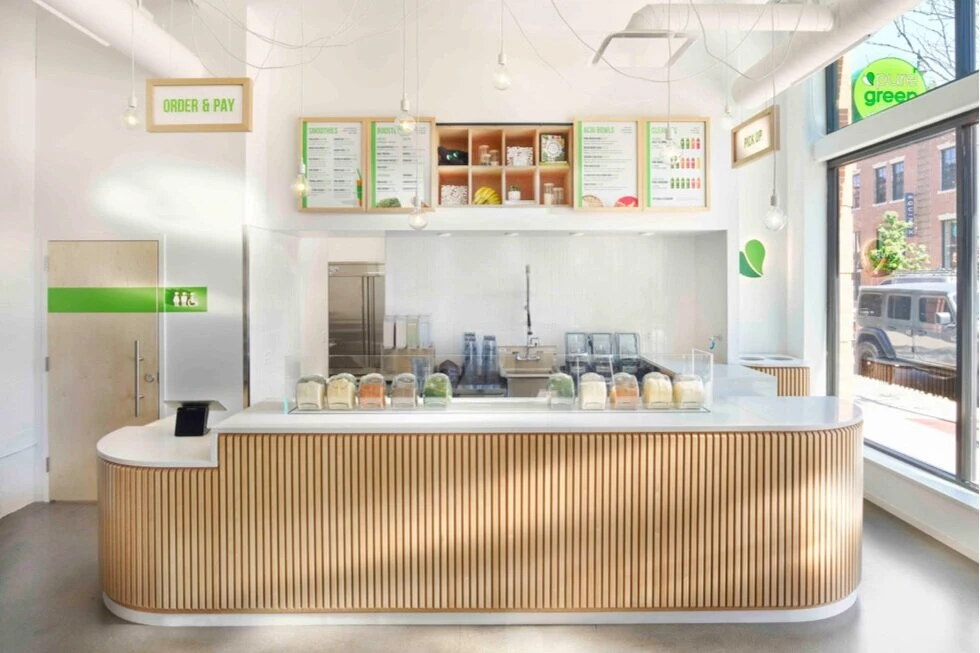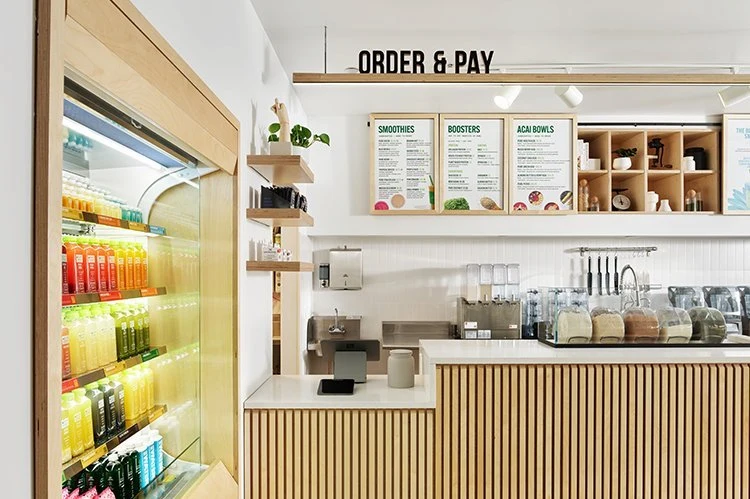Franchise businesses account for over 10% of all U.S. companies, generating nearly $800 billion annually.” That’s a staggering figure—and it’s no coincidence. Franchising offers a proven business model that countless entrepreneurs swear by. But here’s the thing: owning a business isn’t always about plugging into a system. Sometimes, it’s about building something entirely your own, brick by brick.
This brings us to the big question: should you follow the franchise route or go fully corporate?
Both models come with unique opportunities and challenges. Franchising lets you tap into an established brand with built-in support, while corporate ownership gives you complete control over your vision. The choice you make could shape everything—your daily workload, your risks, and your long-term rewards.
In this article, we’ll break down the critical differences between franchises and corporate businesses. Whether you’re a first-time entrepreneur or an experienced investor looking to diversify, you’ll get actionable insights to make the best decision for your goals. Let’s get started!
What is a Franchise?
A franchise is more than just owning a piece of a big-name brand—it’s about plugging into a proven system. When you buy into a franchise, you’re not just paying for a logo or a name; you’re investing in a business blueprint that’s been tried, tested, and fine-tuned for success.
Here’s how it works: A franchisor (the brand owner) grants you, the franchisee, the right to operate a business under their established brand. In return, you pay an initial franchise fee and ongoing royalties. Think of it as starting your own business but with a head start—a built-in customer base, established operational guidelines, and often, training to get you up to speed.
For example, when you open a McDonald’s or a Subway, you’re stepping into a business that already has nationwide recognition and a loyal following. You don’t have to figure out how to market burgers or sandwiches—the franchisor has done that for you. Your focus? Running the location, ensuring quality, and following the playbook.
The appeal is clear: franchising minimizes many of the risks tied to starting a business from scratch. But it also comes with limitations, like strict operational rules and ongoing fees. This model works best for people who value structure and are ready to follow a system for long-term success.
What is a Corporate Business?
On the flip side, there’s the corporate business model—the true “start-from-scratch” approach. Here, you’re the boss in every sense of the word. The ideas are yours, the strategy is yours, and so are the risks. But the rewards? They’re all yours too.
A corporate business is independently owned and operated. You create the brand, set the rules, and decide how you want to run the show. Whether it’s opening a coffee shop with a unique twist or launching a tech startup, this is the ultimate path for innovators and dreamers.
The beauty of the corporate model lies in its freedom. Want to pivot your strategy? You can. See a gap in the market? You can fill it on your terms. But with this freedom comes responsibility. You’ll need to build everything—branding, operations, customer loyalty—from the ground up. There’s no safety net, and there are no shortcuts.
Take Starbucks as an example. Before it became a global powerhouse, it was a single coffee shop in Seattle, powered by one man’s vision. Every decision, from the product to the store layout, was carefully crafted to reflect that vision. That’s the essence of corporate business ownership: ultimate control, ultimate responsibility.
For entrepreneurs who crave creative control and are willing to take bigger risks, the corporate model is a thrilling (and potentially lucrative) option. But it’s not for the faint of heart. It’s a journey that demands resilience, grit, and an appetite for challenges.

Key Differences Between Franchise and Corporate Models in 2025
As we navigate 2025, the distinctions between franchise and corporate business models are becoming more pronounced, influenced by emerging trends and shifting market dynamics. Understanding these differences is crucial for entrepreneurs aiming to make informed decisions in today’s business landscape.
Ownership and Control
Franchise Model: Franchisees operate under the umbrella of an established brand, adhering to predefined systems and standards. While this offers a structured pathway to business ownership, it limits the autonomy to make independent decisions.
Corporate Model: Entrepreneurs have complete ownership and control, allowing for full creative and operational freedom. This autonomy enables swift adaptation to market changes but also requires a higher tolerance for risk.
Initial Investment
Franchise Model: The initial investment includes franchise fees, royalties, and setup costs, which can be substantial but provide access to a proven business model and brand recognition. In 2025, sectors like beverages, chicken, and desserts are highlighted as appealing categories for cost-conscious franchisees and customers.
Corporate Model: Startup costs vary widely based on the business type and scale. Entrepreneurs must allocate resources for product development, marketing, and infrastructure without the advantage of an established brand, potentially leading to higher initial expenses.
Branding and Marketing
Franchise Model: Franchisees benefit from the franchisor’s established brand identity and marketing efforts, which can lead to immediate customer recognition and trust. However, they must comply with the franchisor’s marketing strategies and have limited input on branding decisions.
Corporate Model: Building a brand from the ground up allows for complete creative expression in marketing and branding. This approach requires significant effort to establish market presence but offers the flexibility to pivot strategies as needed.
Operational Freedom
Franchise Model: Operations are guided by the franchisor’s established procedures, ensuring consistency across locations. This structure can streamline processes but may restrict innovation and adaptation to local market nuances.
Corporate Model: Full operational control enables entrepreneurs to implement unique processes and adapt swiftly to market demands. This flexibility supports innovation but also demands comprehensive management skills.
Risk and Reward
Franchise Model: The support of an established brand can mitigate some risks associated with business ownership. However, franchisees are subject to ongoing fees and must operate within the franchisor’s constraints, which can limit profit potential.
Corporate Model: With greater risk comes the potential for higher rewards. Entrepreneurs can fully capitalize on their successes but also bear the full brunt of any failures. The dynamic nature of the 2025 business environment, characterized by rapid technological advancements and shifting consumer preferences, amplifies these risks and rewards.
Advantages of the Franchise Model
Franchising continues to be an attractive option for entrepreneurs in 2025, thanks to its proven business framework and evolving opportunities in trending industries. Here’s why:
1. Established Brand Recognition
Franchises come with built-in credibility. Whether it’s a well-known fast-food chain or a trendy fitness studio, customers already trust the brand. In a competitive market where consumer trust can make or break a business, this head start is invaluable.
2. Ongoing Support and Training
Franchisors don’t just hand you the keys and walk away. In 2025, franchise systems are increasingly robust, offering comprehensive training programs and operational support. From managing day-to-day operations to marketing strategies, franchisees are never left to fend for themselves. This is especially beneficial for first-time entrepreneurs.
3. Lower Risk, Higher Success Rates
Studies show that franchises have a significantly higher success rate than independent startups. By leveraging a tested business model, franchisees minimize the trial-and-error phase that often sinks new businesses. This is particularly crucial in uncertain economic climates.
4. Access to Financing
Studies show that franchises have a significantly higher success rate than independent startups. By leveraging a tested business model, franchisees minimize the trial-and-error phase that often sinks new businesses. This is particularly crucial in uncertain economic climates.
5. Focus on Operations, Not Creation
As a franchisee, your primary responsibility is running the business, not building it. You don’t have to worry about creating a logo, developing a product, or establishing market demand—the franchisor has already done that for you. This allows you to focus on what matters: delivering great service and managing operations.
6. Trending Opportunities
The franchise market in 2025 is buzzing with innovation. Sectors like plant-based foods, eco-friendly businesses, and wellness are seeing a surge in demand. Many franchisors are evolving their offerings to align with these trends, making it easier for franchisees to tap into booming markets.

Advantages of the Corporate Model
Owning a corporate business isn’t just about being your own boss—it’s about shaping your vision from the ground up. In 2025, this model offers unique opportunities for innovation, creativity, and total control. Let’s explore the advantages:
1. Complete Control and Flexibility
Owning a corporate business isn’t just about being your own boss—it’s about shaping your vision from the ground up. In 2025, this model offers unique opportunities for innovation, creativity, and total control. Let’s explore the advantages:
2. Unlimited Growth Potential
Unlike a franchise, where growth is often limited by territorial agreements or franchisor policies, corporate ownership lets you scale as far as your ambition takes you. Whether you want to expand locally, nationally, or globally, the possibilities are endless.
3. Freedom to Innovate
2025 is a year of technological advancement and evolving consumer demands. Corporate business owners can capitalize on this by creating unique solutions, developing cutting-edge products, or tapping into untapped markets. There are no franchisor guidelines holding you back, so creativity can flourish.
4. Keep 100% of the Profits
In a corporate business, every dollar you earn stays in your pocket—there are no franchise fees or royalties to worry about. This means that while the risks may be higher, the potential for financial rewards is also significantly greater.
5. Build Your Brand Identity
Your corporate business is a reflection of your vision, values, and creativity. In 2025, consumers are drawn to brands with authenticity and a strong narrative. Owning your brand allows you to connect directly with your audience and differentiate yourself in the market.
6. Opportunities in Emerging Industries
The corporate model is particularly well-suited for entrepreneurs aiming to enter emerging industries in 2025, such as AI-driven services, green energy solutions, and personalized healthcare. These sectors thrive on innovation and adaptability—qualities that are best harnessed in a corporate structure.
7. No Restrictions or Ongoing Obligations
With no franchisor to report to, you’re free from operational restrictions or ongoing fees. This independence allows you to make decisions that prioritize your growth, values, and customer experience without external interference.


Choosing the Right Model for You in 2025
With the key differences and benefits laid out, how do you decide between franchising and starting your own corporate business? The answer lies in aligning the model with your personal goals, financial resources, and risk tolerance. Here are some actionable steps to guide your decision in 2025:
Assess Your Budget
- Franchise: If you have the capital for upfront fees and ongoing royalties and value a system that minimizes trial-and-error, franchising might be your best bet. With many low-cost franchise opportunities emerging in 2025, there’s something for nearly every budget.
- Corporate: If you’re looking to invest your funds into a completely unique vision and can handle variable startup costs, corporate ownership gives you more freedom. Be prepared for the possibility of securing additional funding through loans, investors, or crowdfunding.
Consider Your Personality and Work Style
- Franchise: Are you someone who thrives in a structured environment with clear guidelines? Franchising offers a playbook for success and ongoing support. It’s perfect for those who want to operate a business without reinventing the wheel.
- Corporate: If you’re a natural innovator who craves independence and the ability to make decisions on the fly, corporate ownership will likely suit you better. It’s ideal for risk-takers and those who don’t mind starting from scratch.
Evaluate Your Long-Term Goals
- Franchise: If your goal is to generate steady income and be part of a well-established network, franchising provides a pathway to long-term stability. Many franchisees in 2025 also see the model as a stepping stone to building a portfolio of businesses.
- Corporate: If you dream of building a legacy, creating something entirely your own, or expanding globally without restrictions, corporate ownership offers the ultimate opportunity for personal and financial growth.
Weigh Your Risk Appetite
- Franchise: Franchises come with lower risks, as the model has already been proven. However, lower risk often means limited flexibility in operations and profits.
- Corporate: Corporate businesses carry higher risks due to untested ideas and lack of support, but they also offer higher potential rewards for those willing to take the leap.
Match the Model to the Industry
- Certain industries are more suited to franchising, such as fast food, fitness, and hospitality, where brand recognition and operational consistency are key.
- Others, like technology startups or creative services, often thrive under the corporate model, where innovation and adaptability are crucial.
Key Questions to Ask Yourself:
- Do I want to follow a proven system or build something unique?
- How much control am I willing to relinquish?
- Can I handle the risks and responsibilities of corporate ownership?
- What kind of lifestyle and work environment do I want to create for myself?

Making the Right Choice for Your Future
Franchise or corporate? The answer depends on what you value most in your entrepreneurial journey. Franchising offers a structured, lower-risk path with built-in support and brand recognition. It’s a great choice for those who want to step into an established system and focus on operations. On the other hand, a corporate business is a blank slate—perfect for innovators and risk-takers ready to shape their vision from the ground up.
In 2025, the business world is full of opportunities, from emerging industries like green tech and AI to established markets like hospitality and retail. Whether you thrive in a structured environment or prefer to forge your own path, there’s never been a better time to explore these options.
No matter which model you choose, the key to success lies in preparation, resilience, and aligning your choice with your long-term goals. Take the time to assess your resources, personality, and risk tolerance. This is your journey—make it one that excites and motivates you every step of the way.










